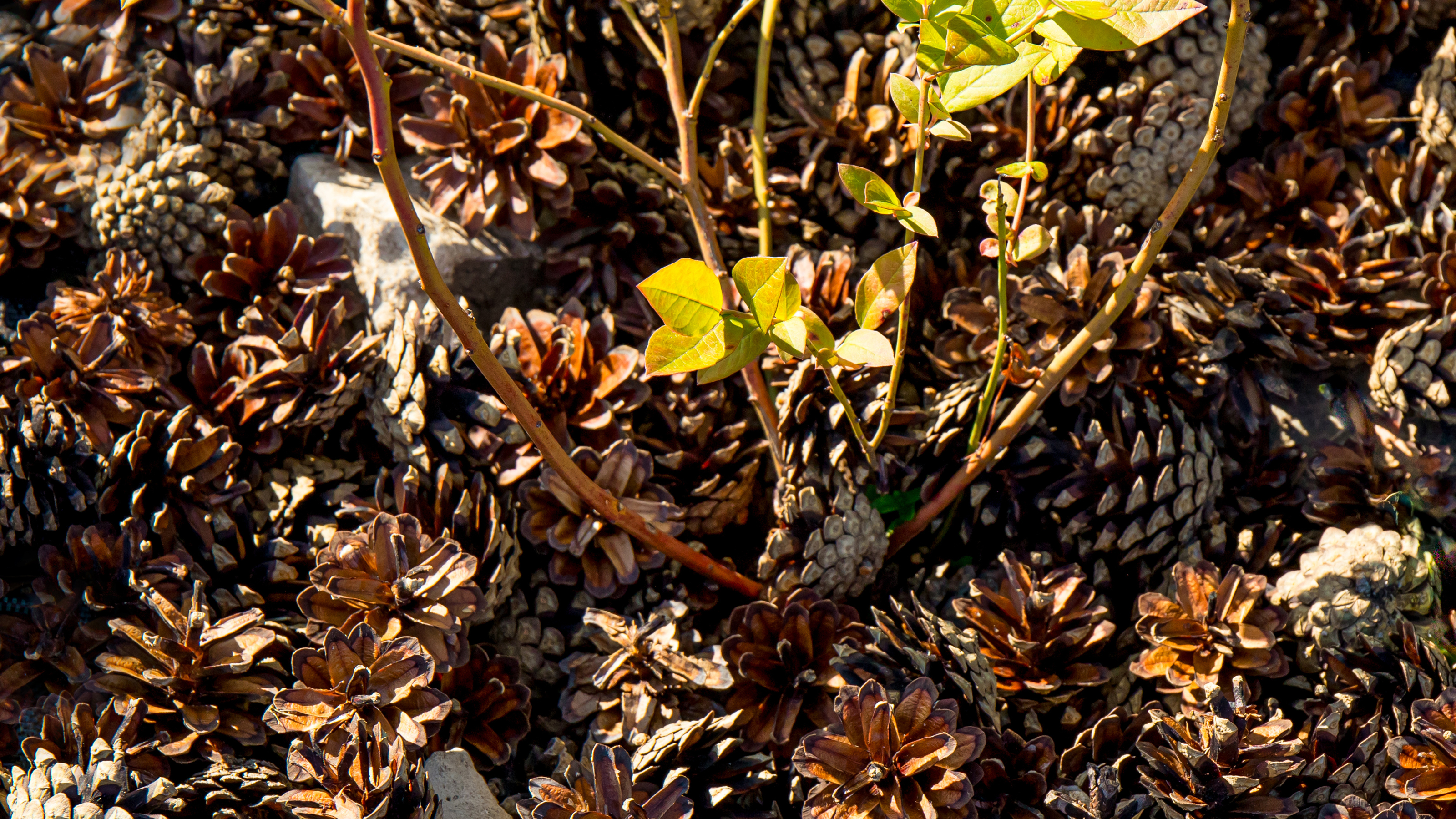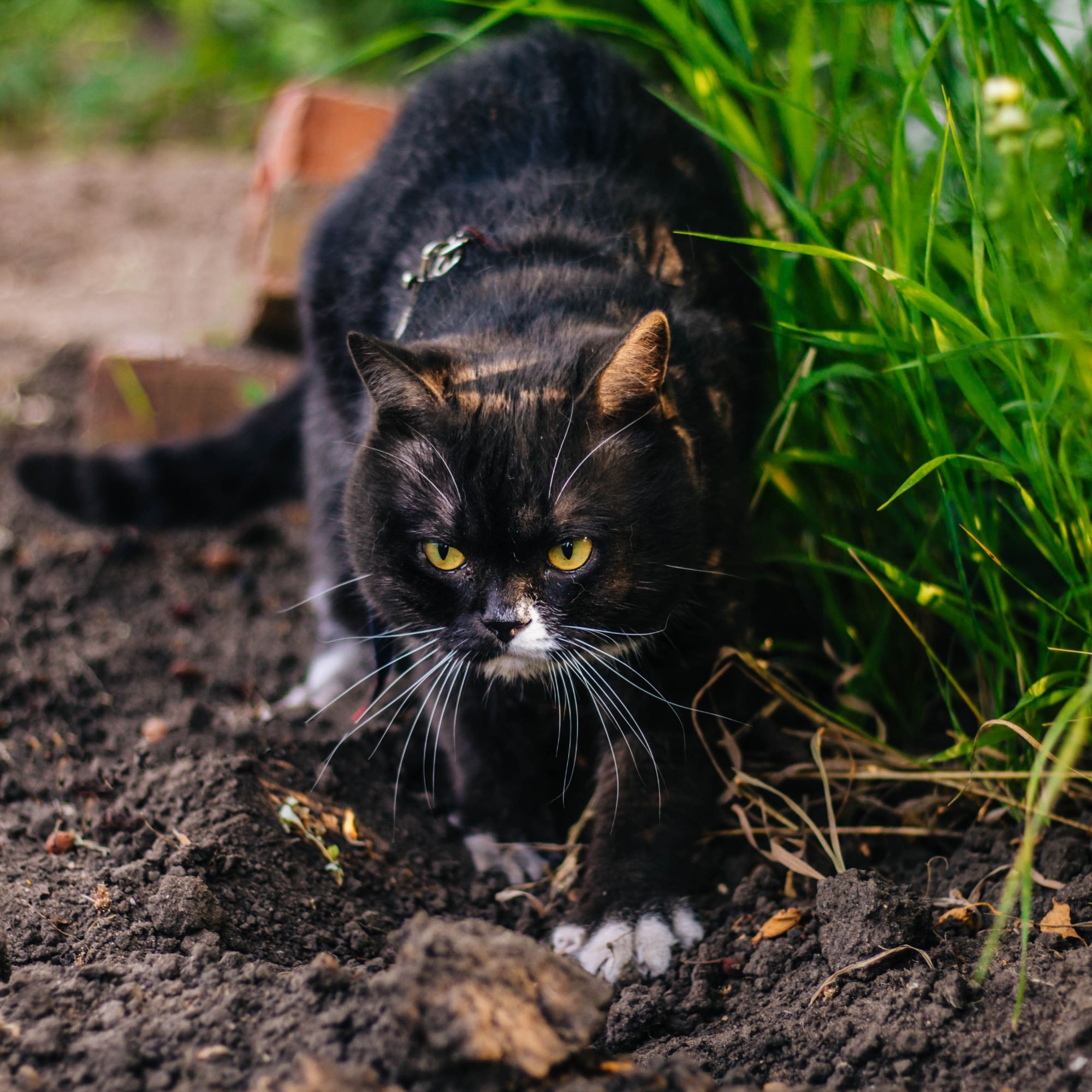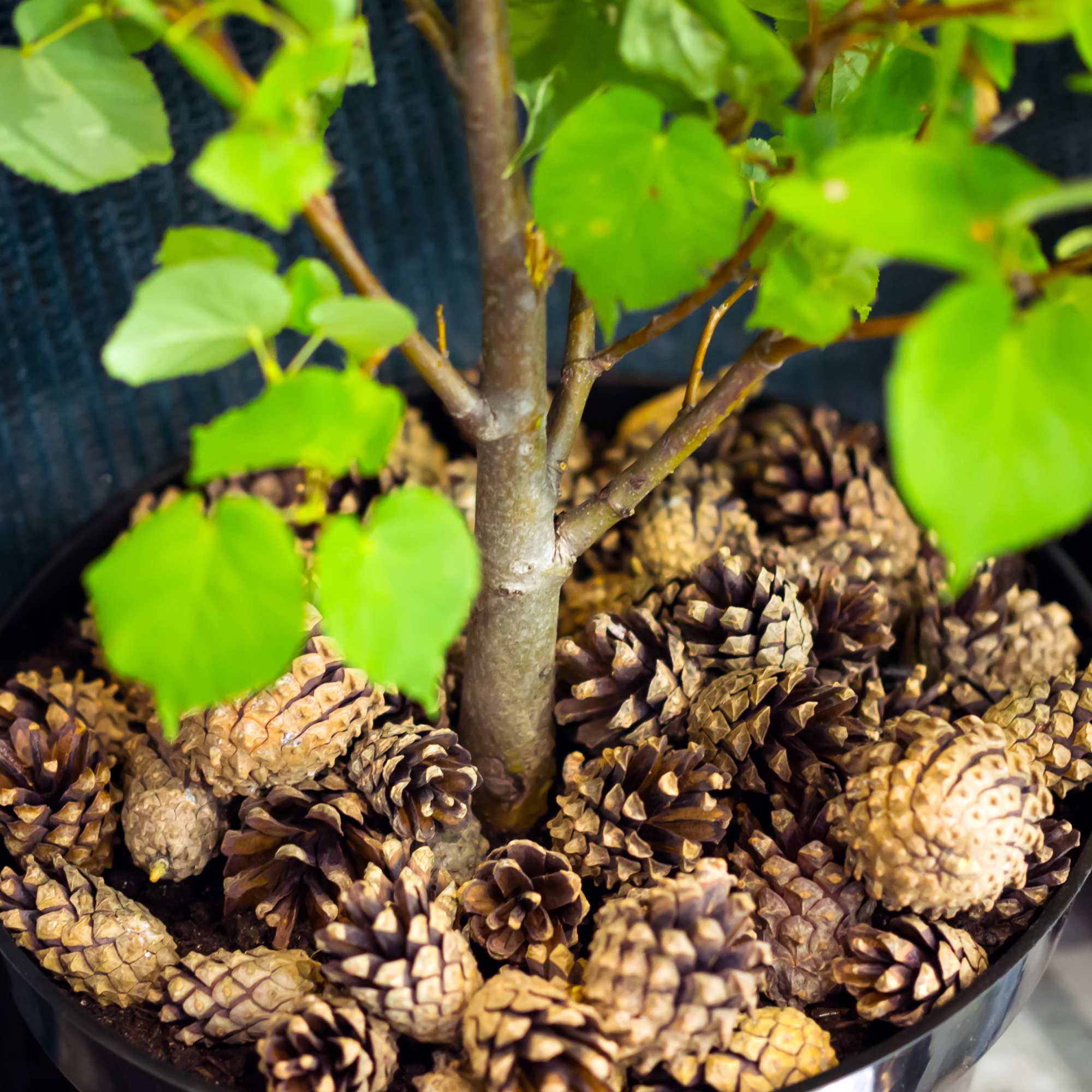Experts say mulching with pine cones can help keep cats from digging in your beds – it's a simple, natural deterrent that protects your plants
Pine cone mulch is having a moment on Instagram, with many insisting it’s the best way to keep curious cats at bay. Does it really work, though?


Sign up to our newsletter for style inspiration, real homes, project and garden advice and shopping know-how
You are now subscribed
Your newsletter sign-up was successful
Once upon a time, cats were worshipped like gods. Many still are, of course, but our fondness for them tends to fade when they start using flower beds as toilets. That’s likely why so many people have started using pine cone mulch as a way to deter cats from their gardens.
Yes, a viral trend on social media suggests a simple scattering of pine cones could be the answer to all of our problems (if, of course, our problems involve feisty felines popping into our gardens to dig holes, scorch foliage, and poop on our lawns).
But does this budget garden hack actually work? Or is it just another social media trend that’s captured people’s imaginations with little evidence to back it up? Let’s dive on in…
Is pine cone mulch the secret to a cat-free garden?

If you’ve so much as glanced at Instagram recently, you’ll likely have spotted at least one gardening account claiming that pine cone mulch is the ultimate cat deterrent.
All you have to do, so claims the theory, is scatter cones across freshly planted beds to stop cats using them as a litter tray.
‘Ever thought of using pine cones as mulch? Not only do they keep the neighbourhood cats from turning your garden into a litter box, but they also help repel slugs, silverfish, and even some weeds. Plus, they last way longer than regular mulch!’ reads one such post from @creative_gardening1, who describes the method as ‘simple, natural, and budget-friendly gardening at its best’.
A post shared by Creative Gardening (@creative_gardening1)
A photo posted by on
So, is there any truth in the claim that pine cone mulch is the secret to a cat-free garden? Well, Steven Bell, gardening enthusiast and founder of Paving Shopper, says there is some logic to the idea.
Sign up to our newsletter for style inspiration, real homes, project and garden advice and shopping know-how
‘Cats like to walk on soft, crumbly soil that’s easy to dig in. Scatter sharp, spiky cones across a border and suddenly it’s not so inviting,’ he says.

Steven Bell is an experienced landscaper, with years of experience owning paving and gardening companies. Combining hands-on expertise with a deep appreciation for sustainable landscaping practices, Steven enjoys sharing his insights with readers to inspire their own green-thumb adventures.
‘While there isn’t any scientific research to confirm pine cones as a fool-proof feline repellent, anecdotal reports suggest they can make a difference, especially if you’re trying to protect freshly planted areas,’ he continues.
That said, anyone who’s owned a cat knows they’re nothing if not determined. ‘It’s worth noting that cats are notoriously inventive,’ Steven adds.
‘Some will simply find a gap between the cones or choose a different patch of the garden. So, pine cone mulch may reduce visits, but is unlikely to solve the problem entirely.’

It’s worth noting here, however, that Christopher O’Donoghue of Gardens Revived is far more sceptical about the effectiveness of pine cone mulch.
‘If it were that simple, many gardeners would be using them already! In my experience, bark mulch is the better all-round option, both for soil health and aesthetics,’ he says firmly.

A gardener with over a decade of experience under his belt, Christopher set up Gardens Revived with his brother, Andrew, in 2018 to create a thriving family business. Together, they have worked on residential gardens, listed buildings and gardens, flower shows and large estates with some exceeding 70 acres – many with historical significance.
Christopher goes on to explain that gardeners typically spread bark, compost, or gravel over soil to suppress weeds, lock in moisture, and improve soil quality over time. Pine cones, however, don’t behave quite the same way.
‘Bark mulch breaks down steadily, enriching the soil, while pine cones are slow to decompose and can look a little messy over time,’ he points out.
Steven, on the flipside, adds that the longevity of pine cone mulch is actually something of a pro; they won’t need refreshing as often, and they provide decent shade for the soil beneath, which helps to slow down evaporation during dry spells and reduce weed growth.
‘Pine cone mulch doesn’t break down quickly, which means it’s long-lasting, but this also means it won’t enrich the soil in the same way bark chips or composted mulches do. Instead, pine cones act more like a decorative ground cover,’ he adds.
FAQs
Will pinecones keep cats away?
While there is no scientific evidence to suggest that pinecones keep cats away, it’s worth remembering that they prefer to walk (and poop!) on soft, loose soil – the kind that they can dig their claws into. A spiky pine cone mulch, then, might make things less inviting, but no more so than usual bark chippings would.
Instead, try something like RocketGro premium bark chunks, £18.99 from Crocus; experts agree it’s a better mulch if you want to protect roots, retain moisture in the soil, suppress weeds, and give cats a less comfortable visit as a bonus.
Do pine cones repel slugs?
Forget cats; do pine cones repel slugs? Experts at The Woodland Trust say they do, describing them as one of the best (and most wildlife-friendly) ways to keep slugs away.
However, they add that you should ‘only take a small amount and leave plenty behind to fulfil its role in nature’ – which means you’re far better off planting bedding plants that slugs hate or using something like these copper slug rings, £34.99, from Crocus instead.
As for keeping cats out? You might notice some success, but don’t expect miracles. Consider pine cone mulch as one tool in a broader toolkit rather than a silver bullet solution, then, and try growing something like the scaredy cat plant if you really need help deterring cats from your garden.
Alternatively, rough bark chippings could help keep pesky paws out of your garden borders. Or, y’know, just keep soil well watered; if there’s one thing cats hate, it’s getting their feet wet!

Kayleigh Dray became Ideal Home’s Acting Content Editor in the spring of 2023, and is very excited to get to work. She joins the team after a decade-long career working as a journalist and editor across a number of leading lifestyle brands, both in-house and as a freelancer.